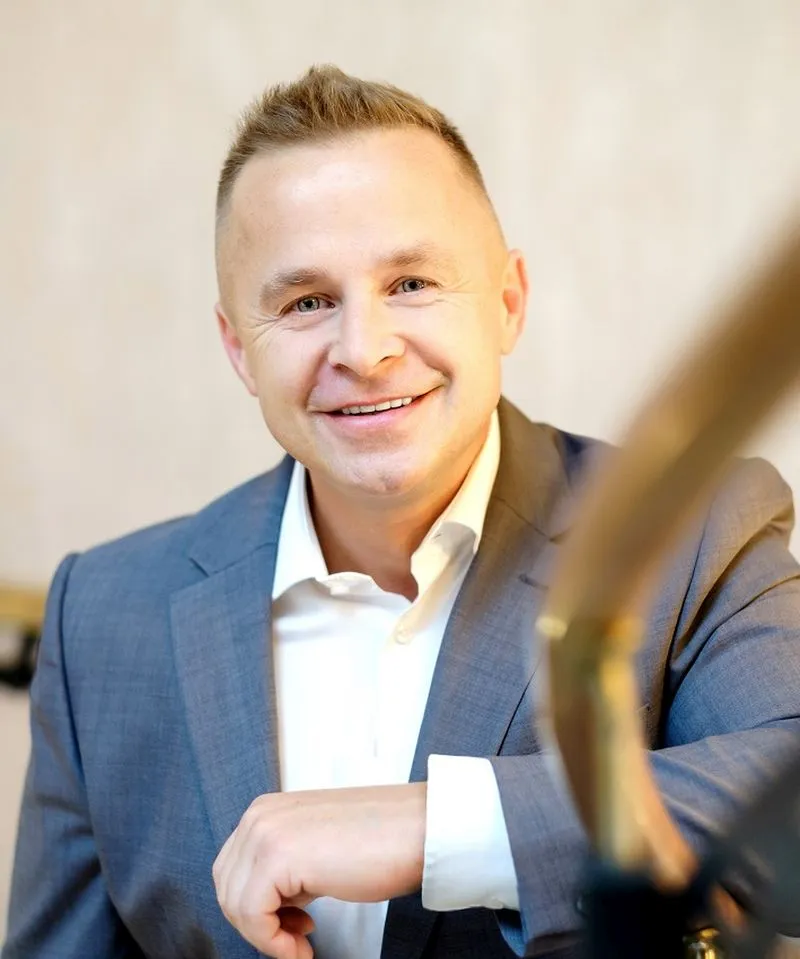Global entrepreneur Roman Ziemian explores how ultra-wealthy individuals are transforming the financial landscape. From Dubai to Silicon Valley, their bold, mission-driven approach disrupts traditional finance and redefines how—and why—capital is deployed in today’s fast-changing world.
Ultra-Wealthy Individuals: Moving Beyond Traditional Investments
In today’s rapidly evolving economic environment, it’s increasingly clear that ultra-high-net-worth individuals (UHNWIs) are no longer content with passive investment vehicles. Instead, they are becoming active participants—and often disruptors—in the financial world. Whether reshaping private equity or real estate or spearheading innovation in technology and climate-focused ventures, UHNWIs are bypassing traditional financial intermediaries and rewriting the rules of wealth management.
This trend is not limited to the West. It’s truly global. In regions like Dubai and Abu Dhabi, where legacy finance once dominated, family offices, private capital pools, and sovereign individuals are now outpacing institutions in agility, foresight, and risk appetite.
The Rise of Direct Capital Deployment
Historically, wealthy individuals entrusted their capital to banks, asset managers, or institutional funds. But today, with unparalleled access to information, platforms, and networks, many UHNWIs prefer to invest directly. Why pay a fund hefty fees when you can invest in the next unicorn’s founder, or acquire the company outright?
We’re witnessing the rise of entrepreneurial investing, where investors offer money, mentorship, industry expertise, and operational support. As Ziemian explains, he’s personally been involved in ventures where he acted more like a strategic co-founder than a passive investor. This collaborative, hands-on approach is how value is built today.
Disrupting the Old Guard of Traditional Finance
Traditional finance relies on predictability and structure. UHNWIs bring the opposite: speed, experimentation, and often a longer investment horizon. While institutions often shy away from deep-tech startups due to long and uncertain R&D cycles, visionary individuals with patient capital—especially those from tech or energy sectors—see opportunity where institutions see risk.
Take the UAE’s venture scene, for example. In the past three years, a new generation of Gulf-based entrepreneurs and investors has emerged, unburdened by slow-moving boards or regulatory hurdles. With sovereign wealth experience and successful exits behind them, they are backing fintech disruptors, clean energy startups, and alternative asset platforms—often well before institutional investors even notice.
The UAE’s Wealth Renaissance
The Middle East, particularly the UAE, has become a textbook example of how private wealth is becoming a disruptive force. With around 81,200 millionaires residing in the UAE and a surge in family offices in Dubai and Abu Dhabi, capital is being deployed faster and more strategically than ever.
A prime example is the Dubai Future District Fund, partly backed by private investors. It’s driving innovation across deep tech, AI, and health tech, powered by agile capital that outpaces what traditional fund-of-funds can offer.
Wealth with a Mission: The Rise of Purpose-Driven Capital
We’re also seeing a major philosophical shift. Many ultra-high-net-worth individuals (UHNWIs) today, especially the younger ones, are increasingly driven by a sense of purpose. They aim to use their wealth for profit and to address real-world problems, such as climate change, education inequality, and digital inclusion.
Impact investing is no longer a niche category. It’s becoming mainstream among private investors precisely because they can act quickly and weave purpose into their investments without worrying about quarterly reports or shareholder demands.
For Ziemian, this shift is personal. He has chosen to invest in platforms focused on mental wellness, education access, and clean mobility, not out of charity, but because they represent the future of sustainable business. Today, the line between doing well and doing good has never been thinner.
What This Means for the Future of Finance
As this movement gains momentum, traditional institutions must evolve—or risk becoming irrelevant. The future belongs to hybrid models that combine agility, personal relationships, and cutting-edge technology.
UHNWIs aren’t just reshaping capital flows. They are redefining trust, transparency, and the role of financial ecosystems. In doing so, they’re making finance more human, intuitive, courageous, and ultimately, more transformative.
As one young founder, Ziemian, recently said, “It’s not just money anymore—it’s a movement.” And that sentiment couldn’t be more true






